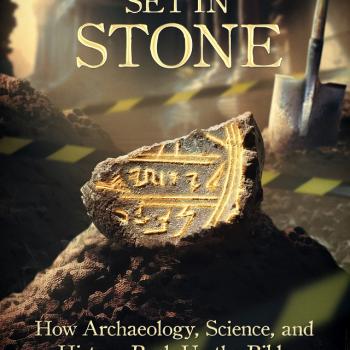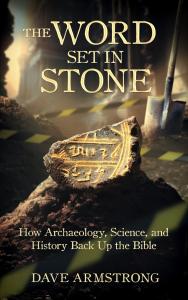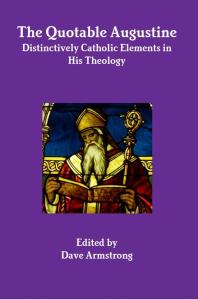
I will be resolving all of the alleged “contradictions” from the web page entitled “194 CONTRADICTIONS, New Testament.” It’s perpetually striking to observe how many of these are obviously not logical contradictions, and how very easy they are to refute (many being patently and evidently absurd). A few here and there do seem to be genuinely perplexing (at first glance) and require at least some thought and study and serious examination (they save my patience). But all are ultimately able to be (in my humble opinion) decisively resolved. Readers can decide whether I succeed in my task or not, in any given case. My biblical citations are from RSV. The words from the web page above will be in blue.
See further installments:
Refutation of 194 Biblical “Contradictions” (#1-25) [4-5-22]
Refutation of 194 Biblical “Contradictions” (#26-50) [4-6-22]
Refutation of 194 Biblical “Contradictions” (#51-75) [4-7-22]
Refutation of 194 Biblical “Contradictions” (#76-100) [4-8-22]
Refutation of 194 Biblical “Contradictions” (#101-125) [4-8-22]
Refutation of 194 Biblical “Contradictions” (#126-150) [4-9-22]
Refutation of 194 Biblical “Contradictions” (#176-194) [4-11-22]
*****
151) All who have sinned without the law will perish without the law. Rom.2:12.
Where there is no law there is no sin or transgression. Rom.4:15.
Taking the second first, Barnes’ Notes on the Bible stated:
This is a general principle; a maxim of common justice and of common sense. Law is a rule of conduct. If no such rule is given and known, there can be no crime. Law expresses what may be done, and what may not be done. If there is no command to pursue a certain course, no injunction to forbid certain conduct, actions will be innocent. The connection in which this declaration is made here, seems to imply that as the Jews had a multitude of clear laws, and as the Gentiles had the laws of nature, there could be no hope of escape from the charge of their violation.
Romans 2:12 is addressing something different: our consciences and consciousness of right and wrong regardless of whether laws exist or not. It has to be understood in the context of the next four verses:
Romans 2:13-16 For it is not the hearers of the law who are righteous before God, but the doers of the law who will be justified. [14] When Gentiles who have not the law do by nature what the law requires, they are a law to themselves, even though they do not have the law. [15] They show that what the law requires is written on their hearts, while their conscience also bears witness and their conflicting thoughts accuse or perhaps excuse them [16] on that day when, according to my gospel, God judges the secrets of men by Christ Jesus.
Since it is two distinct, separate concepts addressed in the two passages, they aren’t contradictory. Paul’s teaching is completely self-consistent. His teaching — especially regarding the relationship of law and grace –, is extremely complex and subtle and sophisticated. It takes years to properly understand. With the persistent manifest ignorance of even the simplest principles of biblical theology (not to mention the laws of logic) that the skeptic has exhibited again and again, there is little or no chance that he or she could grasp the fine points of Paul’s theology:
1 Corinthians 2:14 The unspiritual man does not receive the gifts of the Spirit of God, for they are folly to him, and he is not able to understand them because they are spiritually discerned.
But I have provided a broad reply regarding these two passages, for the sake of others more open-minded and familiar with New Testament soteriology, and to overcome yet another bogus pseudo-“contradiction.”
152) Doers of the law will be justified. Rom.2:13.
Doers of the law will not be justified. Rom.3:20; Gal.3:11.
Romans 2:13 is talking about good works in a general sense, which are certainly necessary for salvation in the overall equation (being the proof of authentic faith), though always ultimately enabled by God’s grace. Romans 3:20 and Galatians 3:11 (see the context of 3:10) are both talking about “works of the law”: which has a distinct meaning of its own. My friend and radio talk show host and author Al Kresta explained this in a section of my first book, A Biblical Defense of Catholicism (2003):
Paul’s arguments against works of the law are not fundamentally arguments against human participation in or human cooperation with the saving purposes of God, but arguments against Judaistic pride that sought to define membership in the covenant community by reference to Jewish marks of identity, such as circumcision, Sabbath-keeping, etc. and not fundamentally faith in Jesus as Messiah. (p. 42)
This outlook is known as “The new perspective on Paul.” It was “new” for the Protestants who developed this understanding in the 1970s (Anglican Bishop N. T. Wright being prominent among them); not so much for Catholics and Orthodox Christians. The Wikipedia article on it explains further:
Paul’s letters contain a substantial amount of criticism regarding the “works of the Law“. The radical difference in these two interpretations of what Paul meant by “works of the Law” is the most consistent distinguishing feature between the two perspectives. The historic Protestant perspectives interpret this phrase as referring to human effort to do good works in order to meet God’s standards (Works Righteousness). In this view, Paul is arguing against the idea that humans can merit salvation from God by their good works alone (note that the “new” perspective agrees that we cannot merit salvation; the issue is what exactly Paul is addressing).
By contrast, new-perspective scholars see Paul as talking about “badges of covenant membership” or criticizing Gentile believers who had begun to rely on the Torah to reckon Jewish kinship. It is argued that in Paul’s time, Israelites were being faced with a choice of whether to continue to follow their ancestral customs, the Torah, or to follow the Roman Empire’s trend to adopt Greek customs (Hellenization, see also Antinomianism, Hellenistic Judaism, and Circumcision controversy in early Christianity). The new-perspective view is that Paul’s writings discuss the comparative merits of following ancient Israelite or ancient Greek customs. Paul is interpreted as being critical of a common Jewish view that following traditional Israelite customs makes a person better off before God, pointing out that Abraham was righteous before the Torah was given. Paul identifies customs he is concerned about as circumcision, dietary laws, and observance of special days.
Again, these are very deep theological waters, debated among equally sincere and theologically educated Christians. The skeptic almost certainly won’t grasp these fine distinctions, but I trust that Christian readers will, or else will be motivated to study the issue more in-depth. In any event, this understanding easily overcomes the supposed “contradiction.”
153) The law has dominion. Rom.7:1.
The law does not have dominion. Rom.6:14.
154) The law was the result of sin. Gal.3:19.
Sin is the result of breaking the law. 1 Jn.3:4.
These both have to do with the deep waters of Paul’s teaching on law and grace. Rather than delve into it again like I did in #151 and #152, I’ll simply link to a good, relevant, in-depth treatment of what is brought up here: whether Christians are still under “the law” or not. See: “The Law of God” (Jimmy Akin, Catholic Answers, 1 October 2000).
155) Those of “God” cannot sin. 1 Jn.3:9.
Those of “God” can sin. 1 Jn.1:7 8.
I John habitually uses proverbial language, meaning that that it utilizes statements of general truths that nevertheless sometimes admit of exceptions. I explained this about 1 John in greater detail in my reply to #29 in my second installment.
156) The anointing of Jesus teaches right from wrong. 1 Jn.2:27.
The law written on the heart and conscience teaches right from wrong. Rom.2:15.
Both do. They complement each other. It’s self-evident to say that we can learn the same thing from more than one source.
157) Abraham was justified by faith. Heb.11:8.
Abraham was justified by works. Jms.2:21.
Abraham was not justified by works. Rom.4:2.
See my paper, Justification: Not by Faith Alone, & Ongoing (Romans 4, James 2, and Abraham’s Multiple Justifications) [10-15-11].
158) It is not good to eat or drink anything that might cause your brother to stumble or be offended. Rom.14:21.
Let no one pass judgment on you in matters of food or drink. Col.2:16.
Both things are true, in opposite ways. In the first, we should try not to offend others by what we eat or drink. It’s true that they are probably weak in their understanding, but charity understands that and still is considerate of their state. The second is talking about folks judging us for what we eat. Since the New Testament teaches that all foods are now “clean” they have no basis to do so. Apples and oranges . . .
159) It is better that widows should not remarry. 1 Cor.7:8.
It is better that young widows should remarry. 1 Tim.5:11-14.
Both passages in context say that it is well and good for widows to remarry:
1 Corinthians 7:9 But if they cannot exercise self-control, they should marry. For it is better to marry than to be aflame with passion.
1 Timothy 5:14 So I would have younger widows marry, bear children, rule their households, and give the enemy no occasion to revile us.
Both of these are consistent. Widows can remarry; young widows are a sub-group of these widows (who can remarry). So far so good. The supposed “contradiction” comes from 1 Corinthians 7:8: “To the unmarried and the widows I say that it is well for them to remain single as I do.” To say that singleness is a preferable state to being married is not to forbid marriage or say that it is a bad thing. In the larger section, Paul teaches that singleness is better in the following sense:
1 Corinthians 7:28 But if you marry, you do not sin, and if a girl marries she does not sin. Yet those who marry will have worldly troubles, and I would spare you that.
1 Corinthians 7:32-35 I want you to be free from anxieties. The unmarried man is anxious about the affairs of the Lord, how to please the Lord;[33] but the married man is anxious about worldly affairs, how to please his wife, [34] and his interests are divided. And the unmarried woman or girl is anxious about the affairs of the Lord, how to be holy in body and spirit; but the married woman is anxious about worldly affairs, how to please her husband. [35] I say this for your own benefit, not to lay any restraint upon you, but to promote good order and to secure your undivided devotion to the Lord.
Paul is also very pro-marriage:
1 Corinthians 7:2 But because of the temptation to immorality, each man should have his own wife and each woman her own husband.
Bottom line: Paul in this chapter teaches that everyone should live as God has called them to live:
1 Corinthians 7:7 I wish that all were as I myself am [i.e., unmarried]. But each has his own special gift from God, one of one kind and one of another.
1 Corinthians 7:17 Only, let every one lead the life which the Lord has assigned to him, and in which God has called him. This is my rule in all the churches.
1 Corinthians 7:24 So, brethren, in whatever state each was called, there let him remain with God.
That could be either single or married. No contradictions at all, once Paul’s teaching is fully understood.
160) The god of this world blinds people to the gospel. 2 Cor.4:4.
There is only one god. 1 Cor.8:4.
Barnes’ Notes on the Bible comments on the first passage:
In John 12:31, he is called “the prince of this world.” In Ephesians 2:2, he is called “the prince of the power of the air.” And in Ephesians 6:12, the same bad influence is referred to under the names of “principalities, and powers,” “the rulers of the darkness of this world,” and “spiritual wickedness in high places.” The name “god” is here given to him, not because he has any divine attributes, but because he actually has the homage of the people of this world as their god, as the being who is really worshipped, or who has the affections of their hearts in the same way as it is given to idols. By “this world” is meant the wicked world; or the mass of people. He has dominion over the world. They obey his will; they execute his plans; they further his purposes, and they are his obedient subjects. He has subdued the world to himself, and was really adored in the place of the true God; . . .
In other words, it’s a metaphorical, sarcastic attribution of the word “god” to the devil. In fact, the Bible makes it clear that there are no other Gods (or gods) besides the one true God:
Deuteronomy 32:17, 21 They sacrificed to demons which were no gods, . . . They have stirred me to jealousy with what is no god; they have provoked me with their idols. . . .
Deuteronomy 32:39 See now that I, even I, am he, and there is no god beside me; I kill and I make alive; I wound and I heal; and there is none that can deliver out of my hand.
2 Chronicles 13:9 . . . Whoever comes to consecrate himself with a young bull or seven rams becomes a priest of what are no gods.
Jeremiah 2:11 Has a nation changed its gods, even though they are no gods? . . .
Jeremiah 5:7 . . . Your children have forsaken me, and have sworn by those who are no gods. . . . (cf. 10:14)
Jeremiah 16:20 Can man make for himself gods? Such are no gods! (cf. 51:17)
1 Corinthians 8:4-6 Hence, as to the eating of food offered to idols, we know that “an idol has no real existence,” and that “there is no God but one.” [5] For although there may be so-called gods in heaven or on earth — as indeed there are many “gods” and many “lords” — [6] yet for us there is one God, the Father, from whom are all things and for whom we exist, and one Lord, Jesus Christ, through whom are all things and through whom we exist.
Galatians 4:8 Formerly, when you did not know God, you were in bondage to beings that by nature are no gods;
161) The powers of this world are wicked, so fight against them. Eph.6:11-13.
All powers are ordained of God and, if you resist, you are damned. Rom.13:1,2.
Variation of #148-149: answered last time.
162) Bear one another’s burdens. Gal.6:2.
Bear your own burdens. Gal.6:5.
RSV has “burdens” for 6:2 and “load” for 6:5; and it does because it is two different Greek words. Eric Lyons of Apologetics Press explains:
In verse 2, “burdens” is translated from baros, meaning “weight,” or figuratively, an “experience of someth[ing] that is particularly oppressive” [Danker, Frederick William, William Arndt, and F.W. Gingrich, (2000), Greek-English Lexicon of the New Testament (Chicago, IL: University of Chicago Press), p. 167]. In verse 5, “burden” is from fortion, meaning “that which constitutes a load for transport,” or “that which is carried and constitutes a burden” (Danker, p. 1064, emp. added).
We see, then, that the meaning of the two taken together, is “bear particularly oppressive burdens of others, and your own ordinary load.” Lyons continues:
Galatians 6:2 and 6:5 do not represent an either/or command. If it is possible for the Christian both to (1) bear his own burden/load, while at the same time (2) help bear another’s burden, then both commands must be followed, without assuming that one command must be obeyed to the exclusion of the other. . . . Are we to work to take care of our families and ourselves? Yes. Are we to help others who are genuinely in need (i.e., who have burdens that they are unable to bear alone)? Yes. (“Bear One Another’s Burdens, or Just Bear Your Own?”, 22 March 2015)
163) Anyone who even greets a non-believer shares his wicked work. 2 Jn.10,11.
Always be ready to answer any man concerning your faith. 1 Pet.3:15.
1 Peter 3:15 is one of the classic biblical rationales for apologetics. We are to be ready to explain and make a “defense” (Greek, apologia) to anyone who “calls” us “to account” for the hope that is in us, and the Christian faith. I’m doing that very thing right now by showing how these objections to the Bible fail.
Norman Geisler gives an excellent explanation of the meaning of 2 John 10-11:
The passage in 2 John is not talking about someone who simply comes to visit. Rather, John is talking about false teachers who are deceivers (v. 7) and who come to present their doctrines.
First, John is instructing the local church, and the individuals of the local church, not to extend hospitality to these persons, because that would imply that the church accepted or approved of their teaching. The people of the local church were directed not even to give a Christian greeting to them, lest this be misconstrued as an attitude of tolerance of their false doctrines. This was by no means a command not to love one’s enemy. In fact, following John’s directives would be the supreme act of love for one’s enemy. By clearly demonstrating an intolerance for false doctrine, it would be possible to communicate to false teachers that they needed to repent. On the contrary, if the church or individual were to extend hospitality to a false teacher, he would be encouraged in his position and take this action as an acceptance of his doctrine, or as a covering of his unrighteousness.
Second, it must be remembered that, in the early church, the evangelistic and pastoral ministry of the church was conducted primarily by individuals who traveled from location to location. These itinerant pastors depended on the hospitality of the people of a local congregation. John is directing the church not to extend this kind of hospitality to teachers of false doctrine. This is not contradictory to Jesus’ teaching. We are to love our enemies, but not encourage them in their evil deeds. We are to do good to them that hate us, but not to condone their wickedness. As Jesus said, we are to show ourselves to be children of our Father. In the very same Sermon on the Mount, Jesus went on to warn His disciples to beware of false prophets “who come … in sheep’s clothing” (Matt. 7:15). John gave practical application to this warning, and thereby encouraged the local church to maintain its purity and devotion to Christ. (“2 John 10 — Why Does This Verse Tell Us Not to receive Certain People When Jesus Told Us to Love Our Enemies?”, Defending Inerrancy, 2014, from a 1992 book)
164) All of the grass on the earth is burned up. Rev.8:7.
The army of locusts are instructed not to harm the grass. Rev.9:4.
Perennial grass varieties have the ability to withstand fire’s damaging effects. The top growth of the grass will suffer damage or death, but the growing points of the plant reach deep below the soil. Fire usually impacts only the top 25 percent of the soil, according to the University of Nebraska. The well-established roots of the perennial grass remain untouched by the fire’s intensity. The grass quickly grows back after a fire and often produces more abundant growth. (“Will Grass Grow Back That Has Been Burned?”, Kimberly Sharpe, Hunker)
The lush, green lawn that you see outside your window every spring is largely composed of perennial grass. (“The Difference Between Annual and Perennial Grass”, Lisa Dingman, Hunker, 3-6-22)
There is an undisclosed timespan between the two verses. It’s entirely possible and plausible that the burnt grass simply grew back: Based on the horticultural information above.
165) Only “The Father” knows. Mk.13:32.
“Jesus” and “The Father” are one. Jn.10:30; 17:11,21,22.
Cornelius a Lapide (1567-1637), the great Jesuit exegete, explains this:
[T]he Son, both as God and as man, by infused knowledge, knows the Day of Judgment and of the end of the world, for it pertains for Him to know this, inasmuch as He has been appointed the Judge of the world. But Christ denies that He knoweth this as man, and as He is God’s messenger to us, because He did not know it so that He could reveal it to us, or because He had not been commissioned by the Father to reveal it to us. As an ambassador who was questioned concerning the secrets of his prince would reply that he did not know them, although he did know them, because he did not know them as an ambassador. For an ambassador declares only those things which he has a commission to declare.
Christ’s meaning then is, “God only knows what year and day and hour the end of the world and the Judgment shall be. And although God has caused Me, Christ, as I am man, to know the same, as I am that one man who is united to the Word; yet as I am the Father’s ambassador to men, He has not willed Me to make known that day, but to keep it secret, and to stir them up continually to prepare themselves for it.”
166) Jesus said that he would judge. Jn.5:22,27-30; Jn.9:39.
Jesus said that he would not judge. Jn.8:15; Jn.12:47.
Jesus said that The Father judges. Jn.12:48,49.
Jesus said that The Father does not judge. Jn.5:22.
Jesus said that his disciples would judge. Lk.22:30.
Here’s another passage about judgment:
John 3:17-19 For God sent the Son into the world, not to condemn the world, but that the world might be saved through him. [18] He who believes in him is not condemned; he who does not believe is condemned already, because he has not believed in the name of the only Son of God. [19] And this is the judgment, that the light has come into the world, and men loved darkness rather than light, because their deeds were evil.
The article, “Does Jesus Judge People?” (Contradicting Bible Contradictions, 8-29-13) comments on this passage: “The overlooked principle is: Jesus doesn’t need to judge. Whoever does not believe, is judging himself.” It continues its analysis of the issue:
The first coming
The first coming of Jesus had a very special purpose as we read in verse 17: to save the world and not to judge the world. Remarkably this is not against God’s general divine judgement concerning all evil. Jesus being the Light was always more in his spiritual and moral standards. He didn’t need to say what people did wrong; in his appearance people experienced that He was more, His divine light entered into the innermost recesses of the heart.
References of the critic that Jesus don’t judge are related to the first coming:
You judge according to the flesh; I am not judging anyone. John 8:15
If anyone hears My sayings and does not keep them, I do not judge him; for I did not come to judge the world, but to save the world. John 12:47
The second coming
In Matthew 25:31-32 Jesus states: “But when the Son of Man comes in His glory, and all the angels with Him, then He will sit on His glorious throne. All the nations will be gathered before Him; …” In the second coming Jesus will take place on his glorious throne to judge. And so it is said about Him: “… this is the One who has been appointed by God as Judge of the living and the dead.” (Acts 10:42)
References of the critic that Jesus will judge are related to the second coming:
For not even the Father judges anyone, but He has given all judgment to the Son, … John 5:22
… and He gave Him authority to execute judgment, because He is the Son of Man. John 5:27
And Jesus said, “For judgment I came into this world, … John 9:39 . . .
Conclusion
The critic failed to see that there are two different moments/situations concerning the question of Jesus’ judgement. The texts that He will not judge are related to the first coming and the texts about his judgement are related to his second coming.
As to portions not addressed in the above article:
Luke 22:30 that you may eat and drink at my table in my kingdom, and sit on thrones judging the twelve tribes of Israel.
This is a specific judgment (related to the twelve tribes) rather than universal, and so is a separate subject matter (therefore not contradictory).
In John 12:48 the judge isn’t the Father but Jesus’ own words: “He who rejects me and does not receive my sayings has a judge; the word that I have spoken will be his judge on the last day.” This is consistent with Jesus being the judge on the Last Day, having been assigned that role by the Father, as this objection notes (John 5:22).
167) He that does not believe is damned. Mk.16:16.
Thomas did not believe and was not damned. Jn.20:27-29.
Mark 16:16 in context is belief in the Gospel and the saving redemption of Jesus Christ. But John 20 was about whether Thomas believed the risen Christ was really Him or not. That’s a separate issue altogether, and in any event, Thomas believed as soon as He felt Jesus’ wounds, and exclaimed: “My Lord and my God!”: one of the most explicit indications in the NT that Jesus was God (since He accepted this address without rebuke).
168) “When his branch is yet tender”. Mt.24:32.
“When her branch is yet tender”. Mk.13:28.
Really? Talk about scraping the bottom of the barrel . . . This is about the fig tree. My RSV has “its” for the “his” and “her” above in an undisclosed translation. “His” is used for Matthew 24:32 in only 6 out of 61 translations (KJV being one). But “so what?” in the first place. It’s simply use of personification. We call ships and countries “she” and “her” sometimes, and currently we call hurricanes by both male and female names.
Jesus did the same; that is, if this is not from older, outdated manuscripts (as it appears to be), so arguably, the “him” and “her” are not even in the original copies and hence not in the Bible. Either way (legitimate manuscript or no), there is no difficulty here, because poetic, non-literal expression is common in all languages.
169) Jesus is God. Jn.10:30.
Jesus is the “image” of God. 2 Cor.4:4.
Jesus was a man approved by God. Acts 2:22.
170) Jesus and God are one in the same. Jn.1:1.
Jesus is beside himself. Mk.16:19; Acts 2:32,33; 7:55; Rom.8:34; etc.
“God” in the second and third examples of #169 and the second line of #170 means “God the Father” as often happens in Scripture: usually understood by context. Jesus, because He was a man, is the “image” of the invisible Father, Who has no body. And Jesus is a man, whereas the Father is not. It’s all standard trinitarian biblical theology.
171) Jesus is the Son of God. Jn.6:69; Jn.20:31.
Jesus is the Son of Man. Mt.18:11; Lk.21:27.
Two titles: both true. The first emphasizes His Divine Nature and the second His incarnation and Messiahship (the phrase comes from a famous messianic OT passage: Daniel 7).
172) Paul states that he does not lie. Rom.9:1; 2 Cor.11:31; Gal.1:20; 1 Tim.2:7.
Paul states that he does lie. Rom.3:7.
This ridiculous and desperate “problem” was dealt with here: Pearce’s Potshots #16: Does St. Paul Justify Lying? [2-12-21].
173) Paul said that he does not use trickery. 1 Thes.2:3.
Paul admits to using trickery. 2 Cor.12:16.
Paul does no such thing in 2 Corinthians, and here we go again with sloppy and indefensible “exegesis” [choke]. He was falsely accused of same by the Corinthians (“I was crafty, you say, and got the better of you by guile”). He defends himself from the false charge in the next three verses. Expositor’s Greek Testament discusses this false accusation:
[H]is adversaries hinted that, although he did not accept maintenance directly, yet the collection made for the Judæan Christians was under his hand, and that he was not above suspicion in his disposal of it. To this he returns an indignant denial, and appeals directly to their own observation of the messengers whom he had sent, of whom Titus (at least) had met him in Macedonia with a report (2 Corinthians 7:6) and was sent back to Corinth with two companions to complete the business, carrying this letter (2 Corinthians 8:6; 2 Corinthians 8:18 ff.).
My patience with this nonsense and folly hangs by a thread. But only 21 to go, so I’ll survive and live to tell the tale. Enduring these “objections” is surely a proof of God’s grace and strength during trials (the trial being an enduring of patience and not any particular difficulty refuting any of these).
174) Paul says that circumcision is nothing. 1 Cor.7:19.
Paul says that circumcision is profitable. Rom.2:25; Rom.3:1,2.
In Romans 2:25 he qualifies his statement by saying “if you obey the law” so he’s simply saying, “those who keep the law get circumcised as part of that law.” 3:1-2 is a variation of that: referring to Jews and Judaism, and the requirement of circumcision. Thus, “apples and oranges” and no contradiction.
175) Do not covet. Rom.7:7; Rom.13:9.
Paul says covet. 1 Cor.12:31; 1 Cor.14:39.
Clearly, different senses of the word “covet” are in play here. The Romans passages reiterate one of the Ten Commandments, where “covet” means “sinful desire for” or “jealousy”, “envy” etc. The Greek word used in both is epithumeó (Strong’s Greek word #1937). It’s used mostly in this negative sense, but not always. For these two verses, Thayer’s Greek Lexicon gives the meaning of “to lust after, covet, of those who seek things forbidden.”
1 Corinthians 12:31, on the other hand, in RSV reads “earnestly desire.” The antiquated language of “covet” in the verse appears in only 6 out of 61 English translations. The Greek word in both passages in 1 Corinthians (also 14:1 in the same sense) is zéloó (Strong’s Greek word #2206). It can be used in both senses: in a bad sense (envy, jealousy): see Acts 7:9; 17:5; 1 Cor 13:4) and a good one, as in these two passages, alongside 1 Corinthians 14:1): defined by Thayer’s Greek Lexicon for these verses as “to desire earnestly, pursue.”
The usage of the word “covert” is exactly the same in English. It has a “bad behavior” definition and a “good / neutral” one. Hence, Dictionary.com for “Covet”:
verb (used with object)
to desire wrongfully, inordinately, or without due regard for the rights of others:
to covet another’s property.
to wish for, especially eagerly:
He won the prize they all coveted.
Merriam-Webster offers a similar dual definition as well, but reverses the order, with the “good one” first (which probably suggests that the “good” usage is a bit more common today).
***
Practical Matters: Perhaps some of my 4,000+ free online articles (the most comprehensive “one-stop” Catholic apologetics site) or fifty books have helped you (by God’s grace) to decide to become Catholic or to return to the Church, or better understand some doctrines and why we believe them.
Or you may believe my work is worthy to support for the purpose of apologetics and evangelism in general. If so, please seriously consider a much-needed financial contribution. I’m always in need of more funds: especially monthly support. “The laborer is worthy of his wages” (1 Tim 5:18, NKJV). 1 December 2021 was my 20th anniversary as a full-time Catholic apologist, and February 2022 marked the 25th anniversary of my blog.
PayPal donations are the easiest: just send to my email address: [email protected]. You’ll see the term “Catholic Used Book Service”, which is my old side-business. To learn about the different methods of contributing, including 100% tax deduction, etc., see my page: About Catholic Apologist Dave Armstrong / Donation Information. Thanks a million from the bottom of my heart!
***
Photo credit: mohamed hassan (2-22-21) [public domain / Pxhere.com]
***
Summary: A Bible skeptic has come up with 194 alleged biblical “contradictions” (usually recycled from old lists). I am systematically going through the list and refuting each one.





















